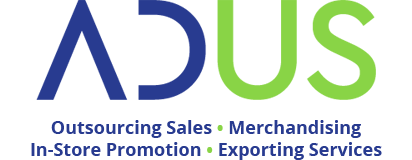In-sourcing vs Outsourcing Field Sales, Merchandising & Ordering Services
There are some obvious advantages for maintaining full control of the FMCG or Retail sector’s business activities. Many companies from the Retail Sector, experiencing rapid growth, choose to in-source by investing heavily in sales and marketing, and utilizing network strategy to develop strong business relationships. Bringing processes handled by third-party firms in-house can also be accomplished by vertical integration through the supply chain.
Monday, December 4, 2017

However, more companies from the FMCG Sector are reviewing their go-to-market strategy. There’s an international trend towards Outsourcing, with cost effectiveness as one of the main drivers. Increasing trading costs and retail price erosion, more companies are looking to outsource their merchandising, brand management and key account management functions. Sales and Merchandising Agencies (SMA’s) increasingly represent more than 20% - 35% depending on the country or the maturity level of every market in a geographic region. Outsourcing enables a brand owner to focus on core competencies and strategy, while employing specialist skills.
There is an increase of about 40% in the international market of FMCG providers that use their Outsourcing Merchandising Partners’ teams not only to carry out the sell out and the rest of merchandising activities but also to capture valuable and providing report analysis to their principals. Seamless sharing, organization and management of customer information and data must be near real-time, and the partner that takes over outsourcing must have the ability to segment data and report separately by principal has seen it become dominant for SMA’s.
SMA’s offer a number of advantages including wider national coverage with increased visits’ frequency, the ability for smaller firms to leverage an existing sales infrastructure, consolidation across several brands for in-store managers, and flexibility of resources with the ability to contract extra specialist services as required.
Analysis of buyer behavior and competitor activity that can also assist with promotional or distribution challenges forms the criterion that drives activities, leading to insights for marketing campaigns and new products.
The Managing Director of a successful SMA scheme states: “As a SMA we have an absolute focus on retail and the nuances of the FMCG market with a core competency to managing the sales channel. Focusing on this single aspect of supply to the market, every SMA enables the development at an expert level that a manufacturer or importer would find costly to replicate.”
On the flip side, from the Supermarkets Sector the opposite trend emerges. Certain have moved from an outsourced service and re-invested in a dedicated in-sourced Sales Team. The outcomes look encouraging and such a trend encounters a number of parameters’ on-going evaluation. However, this is just from the supermarkets’ side.
Whether adopting in-source or outsource model, the critical success factor is the overall ability to provide excellent service. That is the key to success. The influence to increase sales based on distribution, shelf and in-store accuracy is paramount.
The prerequisites of Outsourcing must include proper high tech tools for Near Field Computing to effectively monitor the process and the competent analytical tools in order to deliver high quality data analytics to empower the point of sales set of services.
